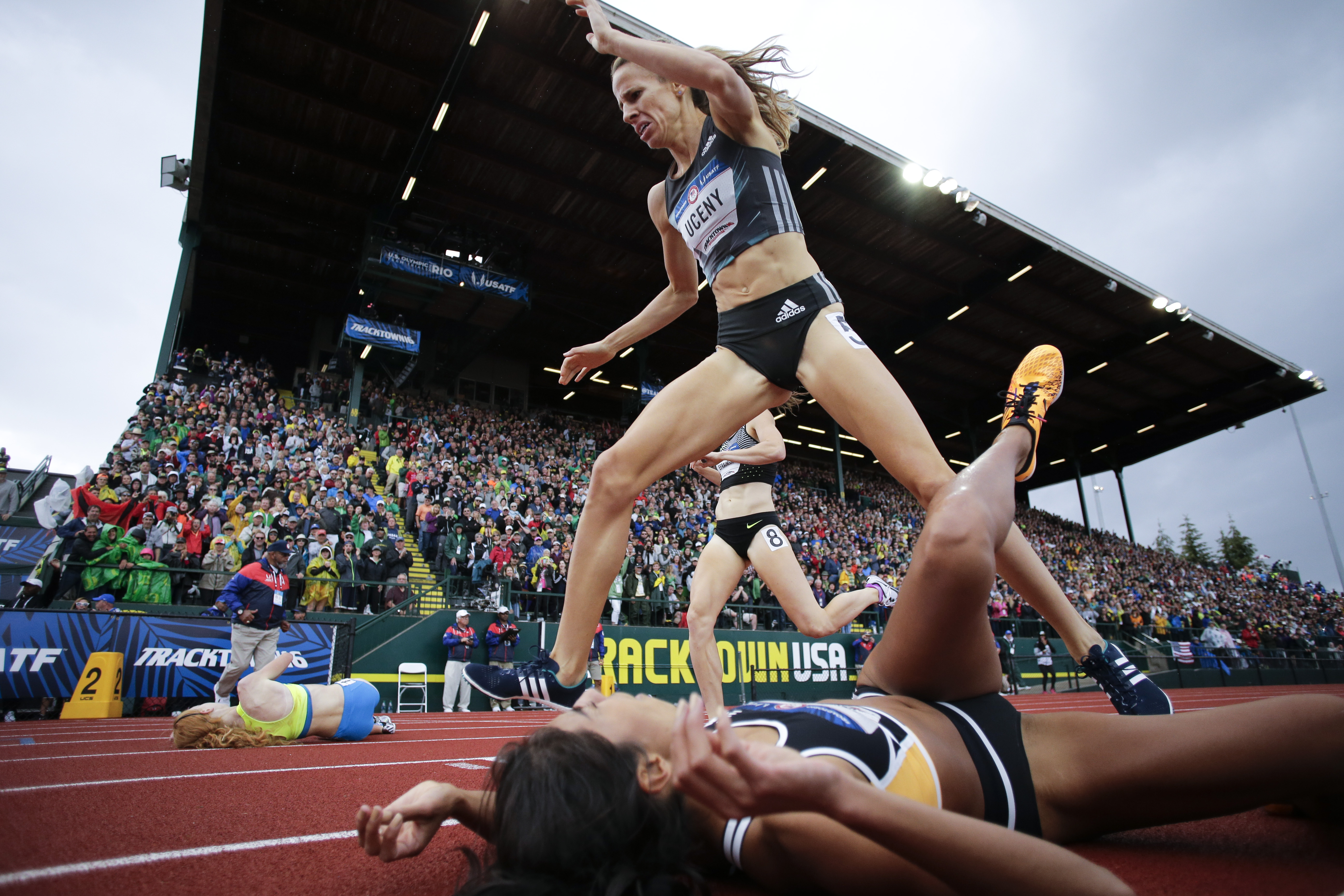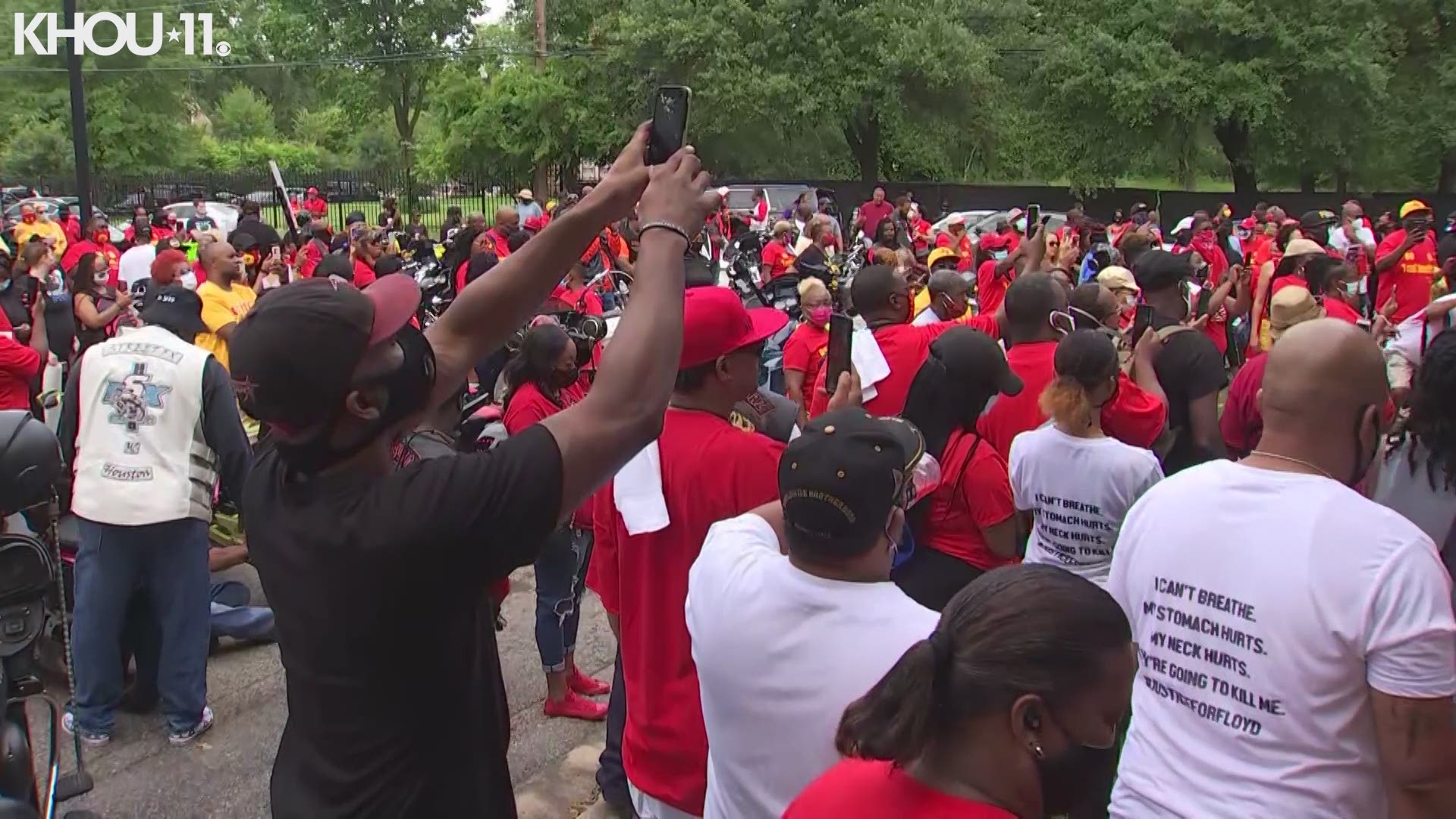EUGENE, Ore. (AP) — Allyson Felix had the star power to change the Olympic schedule.
Now, it's her schedule that needs adjusting.
Felix's run at the 200-400 Olympic double, made possible after Olympics officials honored her request for a chance to run both races, came to an earlier-than-expected end Sunday. She finished fourth in the 200-meter final, one spot away from Rio, in a .01-second loss to a sprawling Jenna Prandini at U.S. Track and Field Trials.
"Honestly, disappointed," said Felix, who will not get a chance to defend her Olympic title in her signature event. "The whole year, that has been what I was working for. When I look back and see everything that happened, I still think it's quite amazing I was able to make the team."
She did make the 400-meter lineup, and that is, indeed, quite an accomplishment considering the injury she suffered this spring. After landing awkwardly on an exercise ball while doing core work, she rolled her right ankle.
The injury was so severe she avoided running around the track in the correct, counterclockwise direction until just before trials, for fear she would put too much outside pressure on her injured ankle.
In track parlance, a sprinter doesn't necessarily have to be "fast" to succeed in the 400 — a full lap around the track in which technique is more important than pure speed. But in the 200, it takes a more aggressive lean into the curve at the opening of the race — just the sort of "speed work" Felix didn't get enough of during her slow comeback.
"I could only do what I could with the ankle," she said.
And so, she started slow, never made up ground against winner Tori Bowie or second-place Deajah Stevens and could not hold off Prandini, the former University of Oregon star who had to wait about 30 seconds to see the result for third place go up on the board. Afterward, she was scraped-up but smiling.
"I don't know what happened," said Prandini, who finished in 22.53 seconds. "But it got the job done."
One of Felix's biggest fans made news earlier in the day: According to USA Track and Field, 16-year-old Sydney McLaughlin will be the youngest member to compete for the U.S. Olympic track team since 1972 after finishing third in the 400-meter hurdles.
Not bad for the junior out of Union Catholic High School in New Jersey, who turned on the Beijing Olympics eight years ago, saw Felix winning the 4x400 relay and thought, "I'd like to be like her, someday."
Asked what she liked most about Felix, McLaughlin said: "She wasn't afraid to lose."
"Sometimes, I get so caught up in the fact that I hadn't lost a hurdles race, and I come here, and these girls are faster than me," said McLaughlin, who admitted to being so nervous earlier in the week she considered pulling out of the meet. "It's realizing that sometimes you have to lose to get better."
It happened to Felix plenty over the years, none more heartbreakingly than in Athens and Beijing, where she settled for back-to-back silvers in an event she had dominated.
But she won gold in 2012.
And with track and field — and possibly NBC, as well — desperate for some star power in a sport now headlined by Usain Bolt and a worldwide doping crisis, a scheduling change that would double the track time for one of America's most popular runners was a no-brainer.
But U.S. trials don't guarantee anything, and on Sunday, a few more potential medal contenders — including 400-meter hurdlers Johnny Dutch and Bershawn Jackson — also saw some dreams end early.
Felix is still going to Rio de Janeiro. But with more free time on her hands than originally planned.
"I'm pretty sure everyone expected to see her on the (200) team," Bowie said. "I'm pretty sure it won't be the same without her."
Other happenings on the final day of track trials:
DIVING FOR RIO: Prandini wasn't the only one who left her feet trying to get that last spot. Last weekend, Brenda Martinez was devastated when she got tripped in the 800-meter final and left behind at the finish. On Sunday, she wasn't going to miss her chance. She leaned, and then barreled over the finish line of the 1,500-meter final to take the third and final spot. Ricky Babineaux had a dive that didn't work out as well; he still came up .06 short of third in the 400 hurdles. "I think it was worth the dive, if I would've made it," he said.
THE SUHR THING: Jenn Suhr is about as close to a sure thing as there is in track and field. Still, the defending Olympic pole vault champion was in tears after she won to make her third Olympics. "It doesn't get any easier when you get older," she said in an on-track interview. "I'm just happy that all the work was worth it."
IF THE SHOE FITS: Kim Conley saw her first attempt at making the Olympics spoiled when her shoe came off in the 10,000 meters. No wardrobe malfunction this time. She finished third in the 5,000. "I had my heart set on the 10 this year. That was disappointing. I feel like I turned the page really well," she said.
OTHER WINNERS: Matt Centrowitz won, as expected, in the men's 1,500. He'll be joined by Robby Andrews and Ben Blankenship. Barbara Nwaba took the heptathlon title. Kerron Clement won 400-meter hurdles to make his third Olympics. He won silver in Beijing and finished eighth in London. Erik Kynard was the men's high jump champion, with a leap of 7 feet, 6 inches.
QUOTABLE: "When I give all I have and run 22.5, it's just not there." —Felix, on her time (22.54 seconds) that landed her fourth in the 200.


